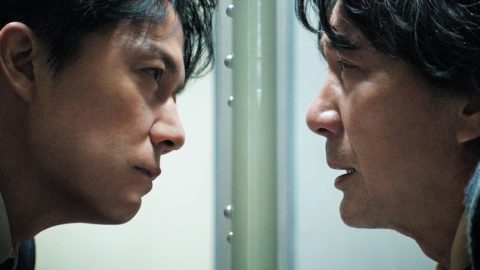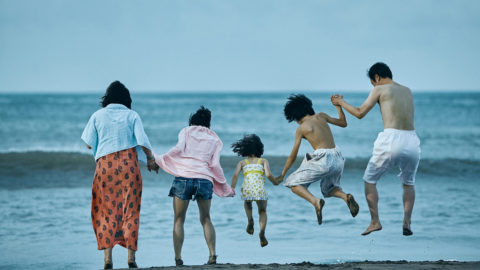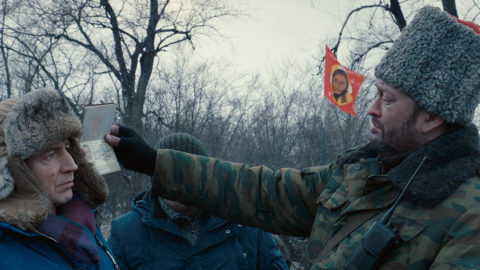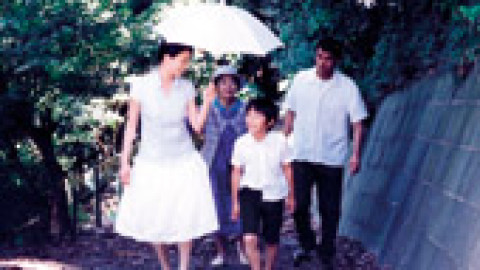Loving Memory: After Life and Shoplifters
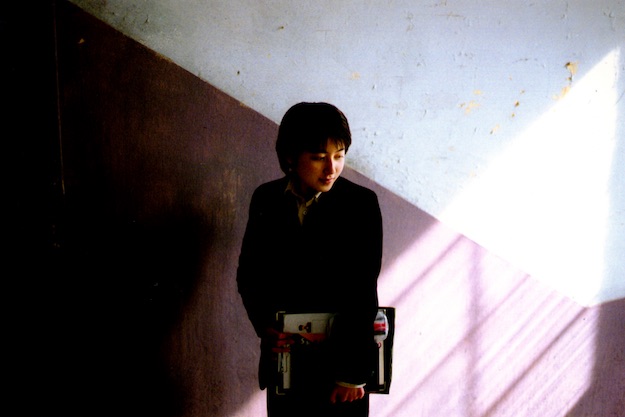
After Life
Riding in a tram on a hot summer day with the breeze coming in the open window. Playing on a rope swing in a bamboo grove. Dancing in a red dress. Sitting on a park bench on an idle afternoon, talking about going to the movies. These are some of the memories selected by the recently deceased in After Life (1998), Hirokazu Kore-eda’s exquisite second feature. The conceit is simple and irresistible: the movie is set in a bureaucratic way-station where those who have just died spend one week, during which they have to select a single memory from their lives that is most precious or meaningful to them, which will become the only record they carry into the beyond. In other hands, this premise could quickly turn sappy, pretentious, or mawkish, but in Kore-eda’s it yields a subtle, clear-eyed, and humane vision of how people look back on their lives.
“My only duty was to describe reality as it had come to me,” John Updike once wrote, “and to give the mundane its beautiful due.” This is a fine summary of what Kore-eda’s films do; they are shaped by a lyrical but sharply observant eye for the details and routines of everyday life, staying true to the documentary form in which the director got his start. This focus on the quotidian can produce epiphanies like the climactic montage in I Wish (2011), a flood of images from daily life that causes the young protagonist to abandon the magical thinking that has launched him on a quixotic odyssey in pursuit of a miracle to reunite his divided family. A popsicle, a thermometer, a red swimsuit, a bicycle bell, a field of wild flowers, a coin on the ground, the crumbs at the bottom of a bag of potato chips—each image is isolated and glowing, distilling an overwhelming tenderness for the ordinary. The pull of sense memories, merging with the distinctive ritualism of Japanese domestic life, is at the heart of Kore-eda’s work, dominating the elegiac family portrait Still Walking (2008). Food, a trademark obsession of these films, reveals itself to be every bit as central to Japanese life and identity as it is to the French or Italians—from the nostalgic corn tempura that sparks a Rashomon moment in Still Walking to the pilfered junk food in Shoplifters. In After Life, at least three of the chosen memories involve eating rice.
Faced with the challenge of selecting a single moment from their experience, many of the deceased struggle—not so much with the abundance of choices, as with the banality of their lives. One elderly man, Watanabe (Taketoshi Naito), is at such a loss that the staff person assigned to his case orders up a stack of VHS tapes that document his existence, and he sits watching fuzzy images of himself puttering around in his office or snoring in an armchair while his wife reads a magazine. Another man can’t dredge up a single happy memory; told that if he selects something from his early childhood, he will then forget the rest of his life, he replies, “That really is heaven.” Informed that 30 people that year have picked memories of Disneyland, a young woman reconsiders and settles on a recollection of lying in her mother’s lap as a little girl. An older man who keeps talking about sex and boasting about his exploits in brothels ends up choosing a memory of his daughter’s wedding. Many of these poetic, funny, and sad segments were non-scripted interviews with real people.
There are no flashbacks; all these memories are conjured through words alone, the speakers framed squarely and simply, with pale Vermeer light spilling across the walls behind them. The film’s gently mournful atmosphere is nourished by the setting of a shabby old municipal building set in an autumnal landscape on the cusp of winter. Gradually, the story shifts from the dead to the staff whose job is to shepherd them through the selection process. They are polite and diligent (“You died yesterday,” they inform newcomers. “I am sorry for your loss.”) In meetings they earnestly discuss their problem cases—those who can’t or won’t choose, who want to pick a dream or a memory from when they were six months old. Who are these conscientious bureaucrats? It turns out that they are the ones who failed to choose a memory, who could not find a resolution or summation to their lives, like the melancholy young Mochizuki (Arata), who died in World War II and winds up 50 years later encountering the man who married his fiancée; or Shiori (Erika Oda), who seems to be in love with Mochizuki, and whose anger and skepticism seem far too vital for a shade.
The staff’s responsibility is not merely to assist with the selection of memories, but also to recreate them as movies, which are screened for the dead on their final day. The filmmaking is endearingly primitive: the tram-ride is recreated with an electric fan, a cassette of trolley noises, and the staff manually rocking the motionless car. For a man who recalls piloting a Cessna through the clouds, there are clumps of cotton wool and a photographic backdrop of the view from a plane. The dead, however, are delighted by these re-stagings, remarking on how exactly they match their recollections. Memories are not, after all, preserved copies of what happened; they are recreated in the mind every time, and they belong not to the past but to the present. The cinematic souvenirs crystallize forever the pleasure of remembering.
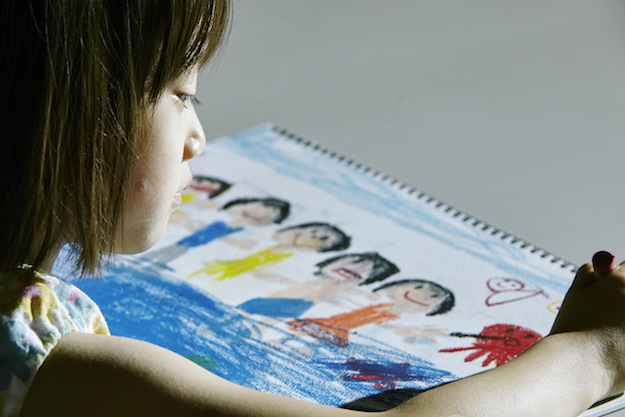
Shoplifters
Kore-eda’s fascination with bereavement and memory showed up early in his career, in the documentaries he made before his first fiction feature, Maborosi (1995), itself the tale of a widow starting a new life. Without Memory (1996) portrayed a man with brain damage that prevented him from forming new memories; a film about a gay man living with HIV was called August Without Him (1994). Many of Kore-eda’s stories revolve around absences: the family in Still Walking has gathered for an annual ceremony commemorating a son who drowned; characters in I Wish and After the Storm yearn to reunite with estranged family members. In Shoplifters, Kore-eda’s latest, Palme d’Or–winning film, it takes a long time for the past to surface, but when it does the revelations at once destroy and make sense of the family we’ve gotten to know.
As usual, we first see their routines and rituals: meals and baths, sleeping and working, the father and son’s well-oiled system of shoplifting. The Shibata family leads a marginal, squalid, bickering, but seemingly stable existence, and when they take in a small girl neglected and abused by her parents, their compassion outweighs their law-breaking. Kore-eda is often compared to Ozu, and here the gritty, warmly humanist, ultimately heartbreaking vision of poverty recalls the silent masterpiece An Inn in Tokyo (1935). It also harks back to Nobody Knows (2004), Kore-eda’s understated but piercing film about children left to fend for themselves by their feckless mother; in this film, as in Shoplifters and I Wish, the director shows children as more mature and responsible than adults, less prone to delusions and self-justification. Nobody Knows conveys the children’s claustrophobic isolation through extreme close-ups of hands and feet and domestic objects, and a focus on activities like brushing teeth, doing laundry, making and eating food, the simple necessities of existence. Except for the oldest boy, the kids are not allowed to leave the apartment; the two youngest are smuggled into the new home inside suitcases, from which they emerge as from the womb. Shota (Kairi Jo), the quietly alert and serious 12-year-old in Shoplifters, sleeps in a cubbyhole like a small cave, filled with trinkets, little toys he has stolen, and cicada husks he’s collected. Small places are both safe and stifling, comforting and confining—like the home itself, and the family.
There is always some humor in Kore-eda’s observations of human behavior, but Shoplifters has more than the usual quotient of joy—not only in setpieces like the family’s idyllic trip to the beach, but in small moments of tenderness, especially between the middle-aged Nobuyo (the understated, intensely moving Sakura Ando) and the little “adopted” girl Yuri (Miyu Sasaki). Both Nobuyo and her husband Osamu Shibata (Lily Franky) have an aching need to be parents—Osamu longs for Shota to call him Dad—but it gradually becomes clear that no one in this makeshift family is actually related by blood, and that disturbing secrets underlie their connections. Kore-eda refuses to resolve the ambiguity of the Shibatas; their family is built on lies and exploitation, but also on deep affection, loyalty, even self-sacrifice. When the truth comes out it changes everything and nothing—just as, in Still Walking, the grandmother’s sly revelation that she knew about her husband’s long-ago affair illuminates but doesn’t alter the family’s dynamics. (She is played by Kirin Kiki, an indispensable presence in Kore-eda’s work, whose role in Shoplifters was one of her last before she passed away in September.)
Even in After Life, the director’s greatest sympathy is for the people who stay behind, still dwelling in ambivalence and uncertainty, rather than those who find an answer and move on. The family, Kore-eda’s great subject, is something that persists, with its lingering resentments and resilient bonds. This makes the ending of Shoplifters all the more devastating. The final image of a lonely child is the strongest illustration of the family’s importance, felt most keenly in its absence.
Shoplifters is screening at the Film Society of Lincoln Center.
Imogen Sara Smith is the author of In Lonely Places: Film Noir Beyond the City and Buster Keaton: The Persistence of Comedy, and has written for The Criterion Collection and elsewhere. Phantom Light is her regular column for Film Comment.



